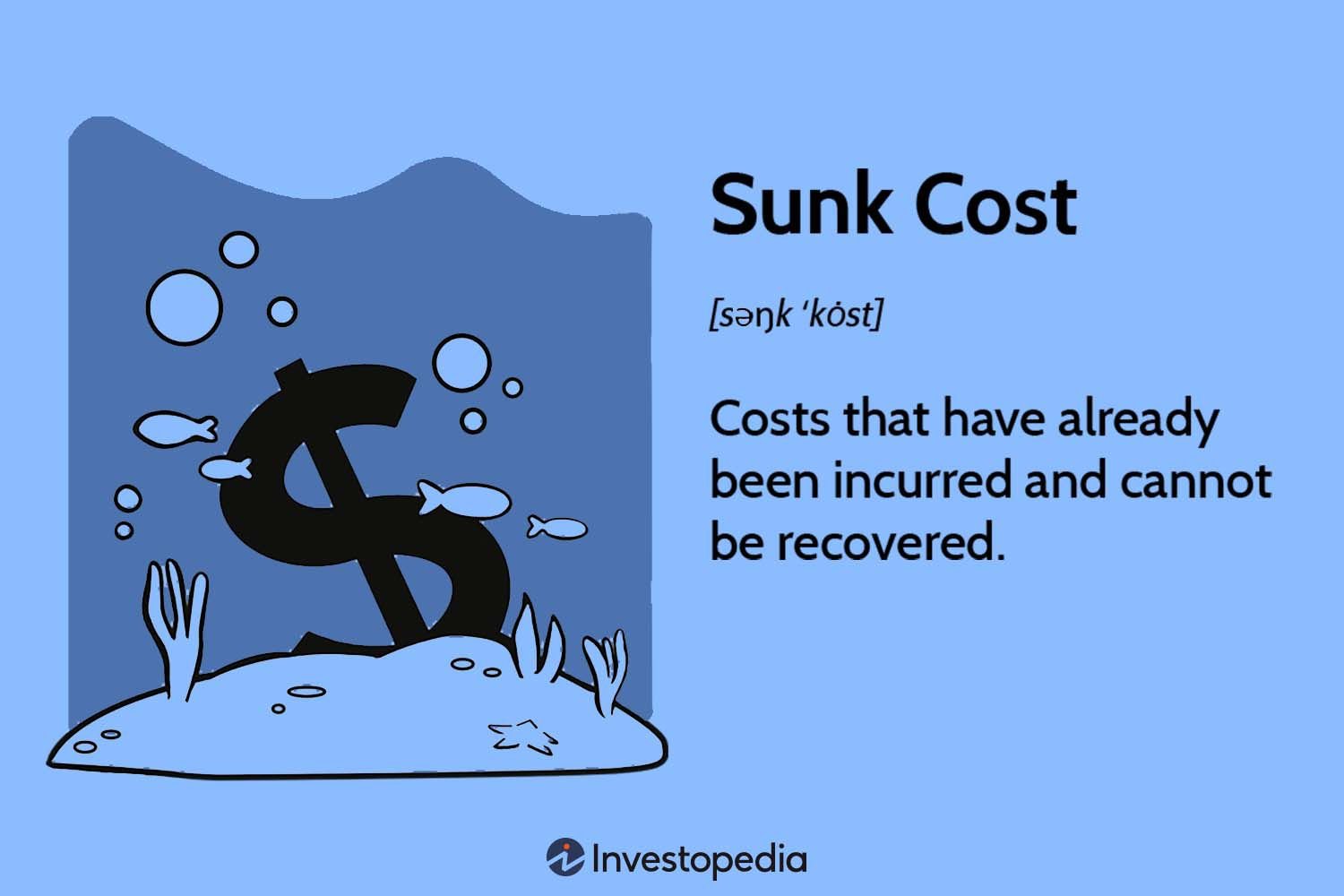What are sunk costs in economics? Sunk costs refer to the expenses that have already been incurred and cannot be recovered. In simple terms, they are the costs that you have already spent and cannot get back, regardless of the future outcome or decision. Understanding the concept of sunk costs is crucial in economics, as it can affect how businesses and individuals make rational decisions. In this article, we will delve deeper into what exactly sunk costs are and how they influence economic decision-making. So, let’s dive right in!
What are Sunk Costs in Economics?
Sunk costs are a fundamental concept in economics that play a crucial role in decision-making processes for businesses and individuals. These costs refer to expenses that have already been incurred and cannot be recovered, regardless of any future actions taken. In other words, sunk costs are costs that have been “sunk” or invested in a project or activity and cannot be retrieved or refunded.
Understanding and recognizing sunk costs is essential because they can influence decision making in both positive and negative ways. By comprehending the concept of sunk costs, individuals and businesses can make more informed choices that are based on rational reasoning rather than being influenced by past investments. Let’s delve deeper into the intricacies of sunk costs and their implications.
Identifying Sunk Costs
To understand sunk costs, it’s crucial to distinguish them from other types of costs. Sunk costs are different from ongoing or future costs, as they are irreversible and already spent. Here are some key characteristics that help identify sunk costs:
- Sunk costs have already been incurred and are non-retrievable.
- They do not change regardless of the future course of action.
- Sunk costs should not be factored into decision-making processes.
- They are typically historical costs associated with past investments or decisions.
- Sunk costs should not be considered when evaluating the feasibility of an ongoing or future project.
In contrast, ongoing costs are those that are incurred continuously throughout a project or activity, while future costs are the expenses that will be incurred if a particular course of action is pursued.
Examples of Sunk Costs
To provide a clearer understanding of sunk costs, let’s explore some real-life examples:
1. Research and Development Expenses
Imagine a pharmaceutical company investing millions of dollars in research and development for a new drug. If, after a significant amount of investment, the drug does not meet regulatory requirements or fails to show promising results, the expenses incurred in the research and development process become sunk costs. Despite the considerable investment, it would not be rational to continue pursuing the drug solely to recover the sunk costs. The decision to continue or discontinue development should be based on future potential and expected returns.
2. Unsuccessful Marketing Campaigns
Businesses often allocate substantial budgets for marketing campaigns to promote their products or services. However, if a particular campaign fails to generate the desired results, the expenses associated with it become sunk costs. Even though the money has been spent, it would not make sense to continue investing in the same campaign hoping for a different outcome. Businesses need to assess the situation objectively and make decisions based on future prospects rather than dwelling on the sunk costs.
3. Personal Investments
Sunk costs are not limited to business decisions; they also apply to personal investments. Consider an individual who purchased a concert ticket in advance but later realizes they won’t be able to attend due to unexpected circumstances. The cost of the ticket becomes a sunk cost because it cannot be recovered. The person should base their decision on attending the concert or not solely on their future availability and enjoyment rather than considering the already spent money.
The Importance of Ignoring Sunk Costs
It is crucial to ignore sunk costs when making economic decisions. Failing to do so can lead to irrational decision-making and inefficient resource allocation. Here are some reasons why:
1. Maximizing Future Returns
By ignoring sunk costs, individuals and businesses can focus on maximizing future returns and optimizing resource allocation based on the potential benefits of future actions. This approach allows for more rational decision-making and improves overall efficiency.
2. Avoiding the “Sunk Cost Fallacy”
The “sunk cost fallacy” refers to the tendency to continue investing in a project or activity simply because significant resources have already been invested, even if the future returns are not promising. Ignoring sunk costs helps individuals and businesses avoid falling into this fallacy and make decisions based on expected future outcomes rather than past investments.
3. Encouraging Flexibility
By disregarding sunk costs, decision-makers can adapt to changing circumstances more effectively. They can shift resources, redirect efforts, or completely abandon projects without being hindered by the weight of past investments. This flexibility allows for a more agile and responsive approach to decision-making.
Applying Sunk Cost Analysis
While sunk costs should generally be ignored, conducting a thorough sunk cost analysis can provide valuable insights when deciding to continue or discontinue a project. This analysis involves considering both sunk costs and potential future costs to evaluate the feasibility and expected returns of an investment.
1. Assessing Expected Future Costs and Benefits
To conduct a proper sunk cost analysis, it’s essential to estimate the future costs and benefits associated with continuing or discontinuing a project. By considering the projected returns and comparing them to the potential future costs, decision-makers can make more informed choices.
2. Evaluating Alternative Opportunities
When facing sunk costs, it often helps to consider alternative opportunities that may yield better returns. By comparing the potential benefits and costs of different options, decision-makers can determine the most viable approach moving forward.
3. Seeking Expert Advice
In complex situations, seeking expert advice from professionals in the relevant field can provide valuable perspectives. These experts can offer insights into the potential future costs and benefits, helping decision-makers make more informed choices.
Sunk costs play a significant role in economics and decision-making. By understanding the concept of sunk costs and their implications, individuals and businesses can make more rational choices that lead to better resource allocation and increased efficiency. Recognizing sunk costs, but ultimately disregarding them, allows decision-makers to focus on maximizing future returns, avoiding the sunk cost fallacy, and adapting to changing circumstances. Through proper sunk cost analysis, decision-makers can evaluate the feasibility of projects and make informed choices based on future prospects rather than being tied to past investments. Remember, in economics, it’s essential to embrace the future rather than dwell on the past.
Sunk Costs Explained I A Level and IB Economics
Frequently Asked Questions
Frequently Asked Questions (FAQs)
What are sunk costs in economics?
Sunk costs in economics refer to expenses that have already been incurred and cannot be recovered. These costs are not relevant to future decision-making since they are irreversible and should not influence current or future choices.
How do sunk costs differ from regular costs?
Regular costs refer to expenses that are yet to be incurred, whereas sunk costs are costs that have already been spent and cannot be recovered. Regular costs are taken into consideration when making decisions, while sunk costs are not.
Can you give some examples of sunk costs in economics?
Some examples of sunk costs in economics include the purchase of non-refundable tickets for an event, advertising expenses for a product that failed, or investments made in a project that was subsequently abandoned.
Why should sunk costs be ignored in decision-making?
Sunk costs should be ignored in decision-making because they are irrecoverable and cannot be changed. Focusing on sunk costs can lead to irrational decision-making and prevent individuals or businesses from pursuing better opportunities.
Are sunk costs considered in calculating a project’s profitability?
No, sunk costs are not considered when calculating a project’s profitability. Only future costs and potential revenues should be considered in order to evaluate the viability and potential returns of a project.
What is the concept of “sunk cost fallacy”?
The “sunk cost fallacy” refers to the tendency of individuals or businesses to continue investing resources into a project or endeavor solely because they have already incurred significant sunk costs. This fallacy leads to irrational decision-making and often results in further losses.
How can businesses minimize the impact of sunk costs?
Businesses can minimize the impact of sunk costs by conducting thorough analysis and evaluation before committing resources to a project. This includes considering potential risks, calculating projected returns, and assessing alternatives to make informed decisions.
What role do opportunity costs play in relation to sunk costs?
Opportunity costs are the potential benefits or opportunities foregone when choosing one option over another. By focusing on opportunity costs rather than sunk costs, businesses and individuals can make more rational decisions based on future benefits rather than past expenses.
Final Thoughts
Sunk costs in economics refer to costs that have already been incurred and cannot be recovered. These costs are independent of future actions and should not influence decision-making. Understanding sunk costs is crucial in making economic decisions based on future prospects rather than past investments. By recognizing that sunk costs are irrelevant, individuals and businesses can avoid making irrational decisions that can negatively impact their outcomes. In economics, it is essential to consider only the relevant costs and benefits of a decision, disregarding sunk costs.



